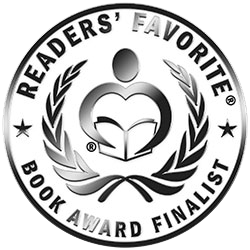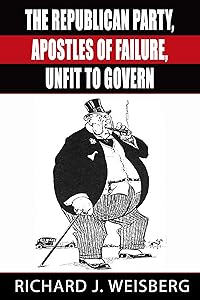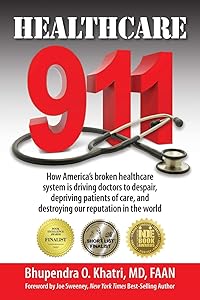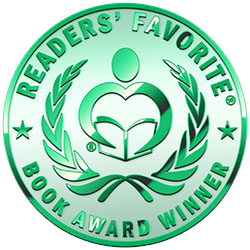150 Award Genres
Children
- Children - Action
- Children - Adventure
- Children - Animals
- Children - Audiobook
- Children - Christian
- Children - Coming of Age
- Children - Concept
- Children - Educational
- Children - Fable
- Children - Fantasy/Sci-Fi
- Children - General
- Children - Grade 4th-6th
- Children - Grade K-3rd
- Children - Mystery
- Children - Mythology/Fairy Tale
- Children - Non-Fiction
- Children - Picture Book
- Children - Preschool
- Children - Preteen
- Children - Religious Theme
- Children - Social Issues
Christian
- Christian - Amish
- Christian - Biblical Counseling
- Christian - Devotion/Study
- Christian - Fantasy/Sci-Fi
- Christian - Fiction
- Christian - General
- Christian - Historical Fiction
- Christian - Living
- Christian - Non-Fiction
- Christian - Romance - Contemporary
- Christian - Romance - General
- Christian - Romance - Historical
- Christian - Thriller
Fiction
- Fiction - Action
- Fiction - Adventure
- Fiction - Animals
- Fiction - Anthology
- Fiction - Audiobook
- Fiction - Chick Lit
- Fiction - Crime
- Fiction - Cultural
- Fiction - Drama
- Fiction - Dystopia
- Fiction - Fantasy - Epic
- Fiction - Fantasy - General
- Fiction - Fantasy - Urban
- Fiction - General
- Fiction - Graphic Novel/Comic
- Fiction - Historical - Event/Era
- Fiction - Historical - Personage
- Fiction - Holiday
- Fiction - Horror
- Fiction - Humor/Comedy
- Fiction - Inspirational
- Fiction - Intrigue
- Fiction - LGBTQ
- Fiction - Literary
- Fiction - Magic/Wizardry
- Fiction - Military
- Fiction - Mystery - General
- Fiction - Mystery - Historical
- Fiction - Mystery - Legal
- Fiction - Mystery - Murder
- Fiction - Mystery - Sleuth
- Fiction - Mythology
- Fiction - New Adult
- Fiction - Paranormal
- Fiction - Realistic
- Fiction - Religious Theme
- Fiction - Science Fiction
- Fiction - Short Story/Novela
- Fiction - Social Issues
- Fiction - Southern
- Fiction - Sports
- Fiction - Supernatural
- Fiction - Suspense
- Fiction - Tall Tale
- Fiction - Thriller - Conspiracy
- Fiction - Thriller - Environmental
- Fiction - Thriller - Espionage
- Fiction - Thriller - General
- Fiction - Thriller - Legal
- Fiction - Thriller - Medical
- Fiction - Thriller - Political
- Fiction - Thriller - Psychological
- Fiction - Thriller - Terrorist
- Fiction - Time Travel
- Fiction - Urban
- Fiction - Visionary
- Fiction - Western
- Fiction - Womens
Non-Fiction
- Non-Fiction - Adventure
- Non-Fiction - Animals
- Non-Fiction - Anthology
- Non-Fiction - Art/Photography
- Non-Fiction - Audiobook
- Non-Fiction - Autobiography
- Non-Fiction - Biography
- Non-Fiction - Business/Finance
- Non-Fiction - Cooking/Food
- Non-Fiction - Cultural
- Non-Fiction - Drama
- Non-Fiction - Education
- Non-Fiction - Environment
- Non-Fiction - Genealogy
- Non-Fiction - General
- Non-Fiction - Gov/Politics
- Non-Fiction - Grief/Hardship
- Non-Fiction - Health - Fitness
- Non-Fiction - Health - Medical
- Non-Fiction - Historical
- Non-Fiction - Hobby
- Non-Fiction - Home/Crafts
- Non-Fiction - Humor/Comedy
- Non-Fiction - Inspirational
- Non-Fiction - LGBTQ
- Non-Fiction - Marketing
- Non-Fiction - Memoir
- Non-Fiction - Military
- Non-Fiction - Motivational
- Non-Fiction - Music/Entertainment
- Non-Fiction - New Age
- Non-Fiction - Occupational
- Non-Fiction - Parenting
- Non-Fiction - Relationships
- Non-Fiction - Religion/Philosophy
- Non-Fiction - Retirement
- Non-Fiction - Science/Technology
- Non-Fiction - Self Help
- Non-Fiction - Short Story/Novela
- Non-Fiction - Social Issues
- Non-Fiction - Spiritual/Supernatural
- Non-Fiction - Sports
- Non-Fiction - Travel
- Non-Fiction - True Crime
- Non-Fiction - Womens
- Non-Fiction - Writing/Publishing
Poetry
Romance
Young Adult
- Young Adult - Action
- Young Adult - Adventure
- Young Adult - Coming of Age
- Young Adult - Fantasy - Epic
- Young Adult - Fantasy - General
- Young Adult - Fantasy - Urban
- Young Adult - General
- Young Adult - Horror
- Young Adult - Mystery
- Young Adult - Mythology/Fairy Tale
- Young Adult - Non-Fiction
- Young Adult - Paranormal
- Young Adult - Religious Theme
- Young Adult - Romance
- Young Adult - Sci-Fi
- Young Adult - Social Issues
- Young Adult - Thriller
Illustration Award
Recommend this book:
Words Whispered in Water
Why the Levees Broke in Hurricane Katrina
Sandy Rosenthal

2021 Bronze Medal
346 Pages
Check current price
Non-Fiction - Gov/Politics

Words Whispered in Water: Why the Levees Broke in Hurricane Katrina by Sandy Rosenthal is a David vs. Goliath story or a more recent Erin Brockovich vs. Pacific Gas & Electric Company of California, except this time the scope is much larger than a biblical myth or the fight for justice against an unconscionable corporation. This book is a documentary about one housewife’s effort to unearth the truth about the real reason those levees failed, causing the deaths of 1,836 US citizens. With unbelievable energy and determination, Ms. Rosenthal launched and organized a grassroots movement (Levees.org) that took on the mighty United States Army Corps of Engineers, the main designers, and contractors of the failed New Orleans levees that collapsed during Hurricane Katrina in 2005. She started with help from her 15-year-old son who designed a website intending to place the blame squarely on the poor design by the Army Corps. The book is a testimony of the fourteen-year-long fight for the truth to come out – a story meticulously documented and cross-referenced with publicly available data.
I must say that reading Words Whispered in Water was a refreshing experience – reading an almost day-by-day account of a struggle that seemed hopeless at times. I found the style clear and easy to follow, the facts presented were enlightening. The information had been mostly unknown to me and is shockingly convincing about the book’s main theme: powerful players in the drama used every dirty trick to misdirect blame from themselves, even going to the length of blaming the victims. In the era of post-truth social media hysteria, I thoroughly enjoyed reading an objectively reported investigation into a tragedy that should never have happened. The courage of Sandy Rosenthal in her crusade to reveal the truth and disprove the unfair accusations against her beloved New Orleans should inspire all her readers to take a stand for decency when they are faced with the challenge.
Recommend this book:
The Uninformed Voter
Robert Levine

2021 Silver Medal
386 Pages
Check current price
Non-Fiction - Gov/Politics

The Uninformed Voter by Robert Levine is a non-fiction political philosophy and public opinion book that delivers the author's critical assessment on the governing of the United States of America and the voters who put them there. The book is broken down into twelve distinct and interlaced chapters, covering the fragility of democracy in 'the Great Experiment' that is America, its foundational principles and evolution—which resembles a regression over actual progress, corruption in politics that include sexual scandals and harassment alongside financial incentive and lobbyists. This transcends into the ways corruption impacts foreign governments, polarizing both historical and modern partisanship, red tape, bureaucracy, and inefficiency, among many other things.
The Uninformed Voter is an ambitious undertaking that Robert Levine tackles with intensive factual analysis and just enough panache to keep the whole book fascinating. This is not a light read, nor is it meant to be. It reads like an in-depth dissertation modified for public consumption and leaves little doubt that much of what Levine argues has merit. If any reader questions this, the fifty-plus pages of source material and references in the back matter should clear it up immediately. My interest in Levine's direction comes from being a dual UK and US citizen myself and watching one country implode with Brexit, and the other brought to its knees by a self-serving costermonger. Both were the result of short-sighted voters on pitchfork crusades, electing people who work against the best interests of all. I had to restrain a chuckle when the inability of most US citizens to pass the US citizenship test was mentioned in a blip, on account of having had to take it myself and my co-workers having a deer-in-the-headlights look when I quizzed them on it. Levine has a lot to say, and while not everyone will make their way into the fold, he's worth a listen and a read.
Recommend this book:
Bellwether Blues
A Conservative Awakening of the Millennial Soul
Jonathan R Jakubowski

2021 Gold Medal
224 Pages
Check current price
Non-Fiction - Gov/Politics

Bellwether Blues: A Conservative Awakening of the Millennial Soul by Jonathan R Jakubowski is a spellbinding book that combines political and social commentary with personal stories to demonstrate how millennial voters, who have been out of reach to conservatives, are shifting their choices from the left to the right. The book presents seven stories of millennials — Tiffany Crain, Jenna Cline, Jose Mendez, Arron Lawrence, Douglas Simpson, Alfonso Mack, and Jeremy Harpel — and illustrates how they broke away from the cycle of hopelessness, skepticism, and despair when considering the state of American political affairs. While these characters are from different backgrounds and each is imbued with unique challenges, their stories are revealing of the questions that inhabit the minds of millennials.
Readers will not only understand why these seven millennials in Swing County America swung from Obama to Trump but will also decipher the salient values of faith, family, and freedom in the electoral context. Tiffany has experienced the pain of not seeing her unborn children, Arron is a replica of the hidden dreams and aspirations of young ones in black communities, and Jeremy has concerns and worries about attacks on individual freedom. Each of these characters has a stirring in the heart, a yearning that a democratic culture — even if it is more open to innovation than the conservative — has not successfully addressed. Each of the characters that readers encounter in this book is well-written and in sharing these stories, the author makes a challenge to conservatives, proposing a new strategy to winning over millennials. Bellwether Blues: A Conservative Awakening of the Millennial Soul is written in gorgeous prose, the voice is compelling and observant, and the entire work is filled with social and political commentaries that are both spot-on and mind-boggling. This author just succeeded to have me rethink what I thought I knew about American politics.
Recommend this book:
The Boiling Frog
How Complacency and Ignorance Created Our Leadership Crisis and What We Can Do About It
Michael Darmody

2020 Finalist
Kindle Edition
Check current price
Non-Fiction - Gov/Politics

The Boiling Frog: How Complacency and Ignorance Created Our Leadership Crisis and What We Can Do About It is a work of non-fiction which is focused on current socioeconomic and political affairs, and was penned by author Michael Darmody. As the title of the work suggests, this volume discusses important inequalities and deliberate oversights made by those who are currently in power and that small proportion of people who hold vast amounts of the world’s wealth. The volume seeks to explain why those with the purse strings are so reluctant to make changes, but also acts as an impetus for change and encourages the rest of us to move beyond ignorance and complacency towards a better tomorrow.
Issues like climate change, inequality, and the wealth gap have indeed gone on too long, and we all need to be reading more works with the ethos and ideology of authors like Michael Darmody. One of the things which I particularly enjoyed about this volume was its high level of accessibility, in that politically minded people and those who are brand new to the concepts can both engage with the material and get so much out of it. The prose is well composed with dynamic calls to action and clear explanations of the methods by which change can occur. The organization of the ideas is such that specific areas are easy to find again and cross-reference for future study and engagement. Overall, I would definitely recommend The Boiling Frog for any reader looking to wake up and be more well informed in politics, economics, and culture.
Recommend this book:
In Its Shadow
A 9/11 Memoir
Jodi Graber Pratt

2020 Bronze Medal
Kindle Edition
Check current price
Non-Fiction - Gov/Politics

In Its Shadow: A 9/11 Memoir is a work of non fiction which discusses the tragic events of international terrorism and its fallout thereafter, and was written by author Jodi Graber Pratt. As a businesswoman who was up close and directly present when the 2001 attacks on the World Trade Center were made in New York City, the author takes us through not only the harrowing reality of the panic-stricken attack itself, but the days of lockdown in New York which followed, and her thoughts on the reformation of America and what needed, and indeed still needs, to be done in order to secure a better, brighter future for one and all.
Author Jodi Graber Pratt tells her story in several phases, crafting a truly excellent work of memoir and governmental thinking which allows us to compare attitudes of modern America with those of not so long ago. The author’s prose is fluid and well penned, offering some truthfully raw moments of pure emotion and fear. She characterizes the feeling of loss and confusion so very well, and I found myself most interested in the fallout period directly after the attacks, as it’s a time that I have not heard anyone really discuss before. As the narrative develops, so do the political ideas and considerations for the future, which are elegantly put forward with great confidence and authenticity. Overall, I would definitely recommend In Its Shadow: A 9/11 Memoir to anyone looking to explore this tragic event in more detail, and from an eloquent first-hand perspective.
Recommend this book:
The Republican Party, Apostles Of Failure, Unfit To Govern
Richard J. Weisberg

2020 Silver Medal
Kindle Edition
Check current price
Non-Fiction - Gov/Politics

The Republican Party, Apostles Of Failure, Unfit To Govern is a work of non-fiction focused on government and politics in the United States, and was penned by author Richard J. Weisberg. With its specific focus put on the policy decisions involving economics, the volume tracks the prior ‘American System’ of commerce, which once had America very high on the list of economic world powers, compared to the newly-emerged Republican plans of the last half-century, in which a fantasy of low taxation for the wealthy has led the country into inequality, privatization, and turmoil. In his treatise on the issues, Weisberg attempts to model a future solution from the successes of the past.
Knowing very little about the history of American economics, I found this volume to be a thorough education on the topic, as well as an eye-opening read for the twists and turns that have led the USA into its current state under the presidency of Donald Trump. Author Richard J. Weisberg treats the subject matter fairly with no undue political bias, looking at clear financial facts and tracking the genuine decline of the American economy and market since the mid-1970s. The writing style is clear and concise, with plenty of additional information that helps to glean a full understanding of the subject matter at hand, and well-explained examples from recent and 19th-century history that make a convincing argument for Weisberg’s case. Overall, The Republican Party, Apostles Of Failure, Unfit To Govern is an insightful and thought-provoking read for all.
Recommend this book:
American Cop
Upholding the Constitution and Defending Your Right to Bear Arms
Loren Culp

2020 Gold Medal
176 Pages
Check current price
Non-Fiction - Gov/Politics

When a police officer of Republic, Washington learns of a new state ballot called Initiative 1639 regulating the ownership of firearms, he could see the Constitution on a slippery slope to its demise. Officer Loren Culp refused to stand by and see the hopes and dreams of the Founding Fathers diluted until the rights and liberties of American citizens were unrecognizable. A post on social media voicing his determination that no citizen would have their rights violated by law enforcement under his watch instantly drew much public support. Loren then contacted City Council and made an appearance on Fox News to continue his fight for justice. American Cop by Loren Culp outlines his arguments to preserve the 2nd Amendment and the God-given birthright of its people. Discover why the safety of American citizens is threatened by strict gun laws and why as a country you must fight to preserve the core foundation of the American Constitution, whether you are pro or anti-firearms. With historical references and quotes from some of the most pivotal people throughout American history, you will discover that to fight for rights you may not agree with is the basis of a free and democratic society.
The arguments put forward in this compelling book are not only powerful but very intelligent. I am not particularly pro-gun myself but Loren Culp provides some convincing statistics and information regarding the manipulation of society into believing one narrative. His breakdown of why fighting for democracy is vital even though you may not agree with some aspects of it was completely on point. The roles of lawmakers and the media in influencing public opinion to suit their own agendas were so pertinent. I found the section on the Democratic Revolution chilling because that kind of society could materialize. Loren's personal stories were beautifully written; he certainly has a great storytelling ability. I could not believe the absurdity of some of the rules regarding Initiative 1939, especially how a person could be responsible for a felon if their firearm was stolen and used to commit a crime. American Cop certainly highlights the frightening consequences of changing any of America's Constitution and hopefully, this book will help bridge the gap between law enforcement and the citizens of the United States.
Recommend this book:
Adoption History 101
An Orphan's Research
Janine Myung Ja

2019 Silver Medal
Kindle Edition
Check current price
Non-Fiction - Gov/Politics

In Adoption History 101: An Orphan's Research, author and adoption rights activist Janine Myung Ja uncovers the ugly underbelly of the modern world-wide adoption industry and recounts some of the heartbreaking and even shocking truths about historical adoption movements and programs. In a well-researched, well-referenced text which she humbly describes as “a short summary,” she educates, advocates, and warns. We need to understand the history of adoption movements, she tells us, and how some were tools in child indenturing, religious conversion, or ethnic subjugation. We need to support changes to laws, she urges, so that adoptees have full human rights, including easy and direct access to any records related to their own birth and parentage. And, she warns, we need to recognize that adoption is a very lucrative and effective screen for criminal child trafficking taking place around the world today, and which leaves countless victims in its wake.
Myung Ja wrote Adoption History 101 not just as a concerned human being, but as an international child adoptee herself who struggled to learn the truth of her own birth and was met with barriers and runarounds at every turn. “This book is a portrait of adoption from the back door,” she writes, “a view that no one really wants to look at, talk about or even acknowledge, but to me is vitally important because adoption is not always a ‘win-win-win’ for all.”
This may be a difficult book for some to read. It’s an emotional topic and an eye-opening one. In the United States, adoption has been so commonplace that any of us may have ancestors who were adopted; or friends and family who are adoptees or adoptive parents; or we may be adopted ourselves. The image of orphaned children, abandoned children, or children willingly placed for adoption being given a better start in life than they would otherwise have had, is a touching and sympathetic one. Unfortunately, it isn’t always a true one.
Recommend this book:
Healthcare 911
How America's broken healthcare system is driving doctors to despair, depriving patients of care, and destroying our reputation in the world
Bhupendra O. Khatri

2019 Bronze Medal
250 Pages
Check current price
Non-Fiction - Gov/Politics

Healthcare 911 by Bhupendra O. Khatri MD, FAAN provides a unique glimpse into the US healthcare system and the damage caused to patients and doctors alike. Physicians tell their personal stories about a working environment which has the highest rates of suicide of any profession. The author points out the many flaws in the system including administrative, legislative, and the insidious control of insurance companies with their endless pursuit of profit over health. He also exposes the crushing working environment, including many bad practices which result in stress on the physician and poor care for the patient. This is a system in crisis and one which pays hospital executives and administrative staff more than the physicians themselves.
This book is a shocking exposé of the way doctors are losing autonomy over the medical treatment of patients in America today. The extent to which corporate America has turned the care of the sick into a profit-making venture is laid bare. Dr Khatri reveals a fascinating account of administrative and corporate takeover. He must be admired for the eloquent way he explains the issues and he should be applauded for his courage in bringing these issues to our attention. The personal stories of both physicians and patients on the receiving end of this corporate-run health care system are absolutely heartbreaking. The beauty of this book is that it also provides a range of solutions, including simple actions such as positive thinking and acts of kindness. Healthcare 911 is a forward-thinking book which should be read by all.
Recommend this book:
Land of My Birth
A Historical Sketch of the First Forty Years of the People's National Party of Jamaica
Leroy E. Cooke

2019 Honorable Mention
444 Pages
Check current price
Non-Fiction - Gov/Politics

In Land of My Birth: A Historical Sketch of the First Forty Years of the People's National Party of Jamaica, Leroy E. Cooke, a patriot, revisits the history of his country and pens an engrossing narrative that showcases the journey of the first forty years of the first political party in the country, the People’s National Party. While this narrative explores how the party was born, its mission, its leadership, and the challenges it has faced over the years, it is also a story of a people, a tale of independence and pioneering leadership. It is a story of discrimination and injustices orchestrated on the poor Jamaicans by the white minority. I have known about Jamaica only through music — thanks to Bob Marley and Jimmy Cliff — but what I knew about this country was very superficial, until I stumbled on this book.
Leroy E. Cooke’s book is packed with information, and while it takes readers through some of the most important moments in the country’s history, it allows the reader to feel the scars of the Jamaican people, to visit its locales, and to feel the soul of its people. The author has a great sense of history and leaves the reader in no doubt that this book is well-researched. It features powerful references — speeches, newspaper clippings, journals, and other historic works. Land of My Birth: A Historical Sketch of the First Forty Years of the People's National Party of Jamaica examines the work of the first political party and unveils the challenges that must be overcome to move the country into the future. This is an invaluable tool for politicians, patriots, and anyone who wants to know more about Jamaica. Apart from being a fascinating history, it is a work that reveals the culture of the people.


